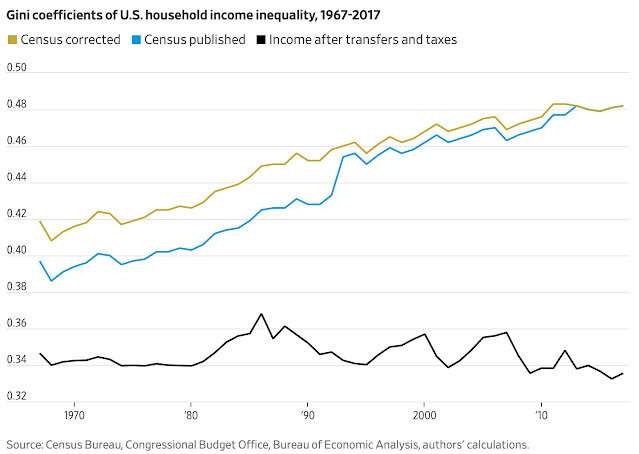Source Stephan Schubert
Source: Chad Jones "straight out of the Penn World Tables, and I first learned about it from Lee Ohanian and Jesus Fernandez-Villaverde"
In the top graph you get the impression that German and French workers are using up to date technology, including both machines, firm organization, opportunities to trade in a wide market, etc. but that they simply choose to, are incented to, or forced to work fewer hours than US workers. Italy and UK are still plodding along 20% or so inside the frontier.
The bottom graph points a bleaker picture. I'm not an expert, but if labor productivity is high and total productivity is low, that means that the productivity of other inputs must be atrocious. Chad (amazing expert on all things growth) "It is stunning to me that Spain and Italy have had negative TFP growth for 20 years."
I remember when real business cycles came out, and many were incredulous at the idea of negative productivity shocks. How can you forget how to do things? Well, maybe not for business cycles, but a society clearly can forget, and retrench. For centuries, remember, Italians looked up in wonder at the cupola of the Pantheon, the arches of the dry aqueducts, and wondered how they had been built.
Source: Eli Dourado.
Before you get all "go USA", let us not forget the largest economic disaster of our own times. These are all relative to the US. How is the US doing? Productivity slowed down suddenly, sharply, and it seems permanently around 2000.
In the long run, nothing else matters. GDP buys you health, advancement of the disadvantaged, social programs, international security, and climate if you are so inclined. Without GDP, you get less of all. Economic policy should have one central goal -- get productivity growing again, or (in my view) get out of the way of its growth. This is the one little hope that has not been let out of the policy Pandora's box, focused on everything else right now.
Update:
John Fernald and Bing Wang date the recent slowdown at 2003. The end of the first tech boom has something to do with it -- but why hasn't the second tech boom shown up in more productivity?
Ed Prescott's famous Ely Lecture* looked at US vs. France and concluded high marginal tax rates reduced French working hours.
Many commenters chalk it up to culture and a preference for leisure. I'm old enough to remember when French people worked Saturday mornings and chuckled at the lazy English who took the whole weekend off. An important work of social science on this question here.
An excellent Vox Post by Fadi Hassan and Gianmarco Ottaviano on Italian productivity. Too much investment in the wrong places, not enough computers. I speculate also too-small companies. Labor laws, regulations and taxes make it desirable to stay small, private, family-run -- and thus local, non-financialized.
*BTW, looking up the citation, I learned that the AEA canceled Ely of the Ely lecture, and renamed the lecture series.







